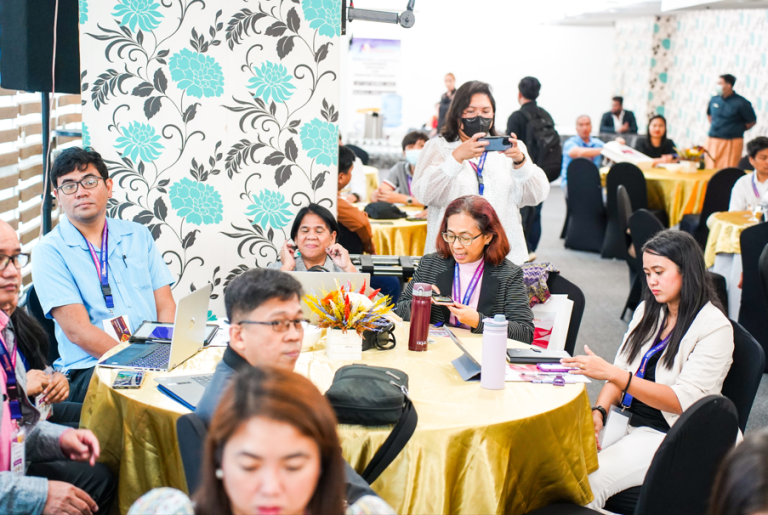In today’s interconnected world, research and Networking Events innovation transcend national boundaries. Smart technologies have revolutionized how researchers collaborate, share knowledge, and drive innovation. The International Conference on Smart Technologies in Health, Management, and Related Fields (ICSTHM) serves as a premier platform for global networking. By leveraging artificial intelligence (AI), blockchain, cloud computing, and virtual collaboration tools, smart networking is transforming global research collaborations, fostering innovation, and accelerating scientific Networking Events breakthroughs.
The Role of Smart Technologies in Research Networking
Smart networking integrates advanced digital tools to streamline communication, collaboration, and knowledge-sharing among researchers. Key benefits include:
- Seamless Connectivity – Smart networking connects researchers across the globe via online platforms, webinars, and virtual events.
- Efficient Resource Sharing – Cloud-based solutions enable real-time access to research papers, datasets, and critical resources.
- AI-Driven Matchmaking – Intelligent algorithms suggest collaborators based on research interests and expertise.
- Enhanced Research Integrity – Blockchain technology ensures data authenticity and prevents research fraud.
- Hybrid and Virtual Collaboration – Virtual reality (VR) and augmented reality (AR) create immersive networking experiences for global researchers.
Why Global Research Collaboration Matters
Collaborating across borders enhances knowledge-sharing and problem-solving. Key advantages include:
- Addressing Global Health Challenges – Real-time data sharing accelerates responses to pandemics and diseases.
- Improving Healthcare Management – AI-powered analytics optimize healthcare administration and patient care.
- Advancing Sustainable Solutions – Smart technologies drive environmental conservation and responsible resource management.
- Accelerating Technological Innovations – Interdisciplinary collaborations fuel groundbreaking discoveries and industry advancements.
Strategies for Enhancing Research Collaboration via Smart Networking
1. AI-Driven Matchmaking Platforms
AI-powered platforms analyze research interests and publications to recommend ideal collaborators. Tools like ResearchGate, Academia.edu, and LinkedIn facilitate targeted networking and interdisciplinary partnerships.
2. Virtual and Hybrid Conferences
Virtual and hybrid conferences, such as ICSTHM, increase accessibility and engagement. VR and AR enhance networking experiences, making global research discussions more interactive and inclusive.
3. Blockchain for Research Transparency
Blockchain technology ensures research integrity by providing immutable, timestamped records of findings, reducing data manipulation risks, and fostering trust among researchers and institutions.
4. Cloud-Based Collaboration Tools
Cloud computing supports seamless real-time collaboration. Tools like Google Drive, Microsoft OneDrive, and Dropbox enable researchers to share, edit, and store critical research documents efficiently.
5. Leveraging Social Media for Professional Networking
Social media platforms like Twitter, LinkedIn, and academic Facebook groups provide avenues for knowledge-sharing, discussions, and forming research partnerships globally.
6. Open Access and Open Science Initiatives
Open access journals and open science platforms eliminate paywalls, ensuring global access to research. This fosters transparency, enhances knowledge dissemination, and promotes equal participation in scientific advancements.
Success Stories in Smart Networking
Case Study 1: AI-Powered Collaboration in Healthcare
During the COVID-19 pandemic, AI-driven networking platforms connected global researchers, enabling real-time data sharing and vaccine research, accelerating the response to the crisis.
Case Study 2: Blockchain for Research Integrity
A global climate science initiative implemented blockchain to verify research data, ensuring transparency and credibility, leading to data-driven policy decisions.
Case Study 3: Virtual Reality in Academic Conferences
An international conference integrated VR-based networking rooms, allowing attendees to interact as avatars, boosting engagement and fostering global research partnerships.
Challenges and Future Directions
Despite its advantages, smart networking faces several challenges:
- Digital Divide – Limited access to smart technologies in some regions hinders inclusivity.
- Data Privacy & Security – Ensuring secure research data sharing while maintaining transparency is crucial.
- Resistance to Adoption – Some researchers and institutions hesitate to embrace emerging technologies due to lack of familiarity or concerns about credibility.
Conclusion
Smart networking is reshaping global Click research collaboration, driving innovation, and enhancing knowledge-sharing. Platforms like ICSTHM provide opportunities to leverage AI-driven matchmaking, blockchain-based integrity verification, cloud collaboration, and Click virtual networking. As digital transformation continues, smart networking will be a key driver of global research advancements, ensuring inclusive, transparent, and impactful scientific collaborations.


